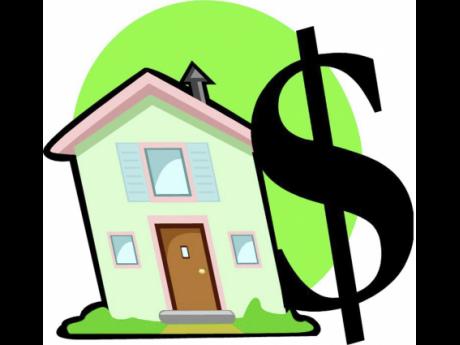Forced property sales hold steady, bucking expectations
January was expected to bring a spike in foreclosures and property auctions, with the end-of-loan moratoriums having rolled off in December, but there has been no unusual jump in the number of forced sales, with just days left in the month.
Some standout properties on the market include a 590-acre property at US$3 million in Clarendon and a $77 million ‘Great House’ in St Catherine.
The bulk of the listings, however, are for homes and apartments under $50 million, and a few old factories. The wealthy with homes over $50 million are largely absent from these forced and private treaty sales.
“There is a correlation between job losses in the low-income sector and foreclosures,” said Keody Thompson, a realtor with Coldwell Banker Jamaica and a member of the Realtors Association of Jamaica, with a decade of experience in the trade. “In term of the high-income foreclosures, they are not many, and private treaties such as the Great House are rare.”
There were 281 listings for private treaty sales by realtor Remax Elite up to Thursday. Most other realtor sites, including Coldwell Banker Jamaica, show 175 private treaty listings. That’s down from 218 in mid-December on the Multiple Listing Service, or MLS, platform utilised by the realtor community. There are also nine properties under foreclosure which involve a public auction of the property to the highest bidder.
The data posted online by Jamaica’s largest financial conglomerate, NCB Financial Group, also shows a dip in reclaimed properties at 79, down from 83 in November. There’s no data online for Scotia Group Jamaica, Jamaica National and Sagicor Group Jamaica, which no longer posts such data. First Global Bank’s list has not been updated beyond September 2020, when there were 17 reclaimed properties posted.
Properties are sold under private treaty in circumstances where the owners fall into arrears and the banks take over the asset to sell it and recover the loan.
Thompson said that high-end foreclosures are rare because owners usually sell the properties for a profit or a loss, before the bank repossesses them.
“The high-end properties might be on the market, not because of COVID-19 but the owners were likely in financial issues from before the pandemic and not necessarily because of the pandemic,” she said.
Job losses under the pandemic and the slow recovery of sectors such as tourism and entertainment have affected the income of many Jamaicans.
“We thought it would be a buyer’s market, because of the fallout with Airbnb, job cuts in the hotel sector and the economic recession. But that has not been the case. It is still a seller’s market because the middle to upper class still have a net of protection,” the realtor said.
Thompson added that there’s increased activity in the market since the start of 2021 with buyers paying above asking price for properties in the upper income bracket. She referenced a commercial property which sold for 10 per cent higher than the $65 million asking price, and a residential property in St Andrew which sold for 20 per cent more than the $48.5 million listing.
“Both were sold with cash,” she said, while noting that the transactions were not representative of the market in general. “There is still liquidity within certain levels of the market.”
In December, Andrew Issa, the head of Coldwell Banker, was among those pushing back against the notion that foreclosures would have spiked this month. He said then it was more likely, due to the continued buoyancy of the real estate market, that forced sales would dip in 2021.
Others thought the properties within the short-term rental market and low-income homeowners who had got a short-term break on mortgage payments from the National Housing Trust, NHT, would be at increased risk of losing their properties when the new year rolled around.
NHT currently has no properties listed for public auction but has 52 properties listed for private treaty sale, down from 65 in December. The state-owned agency does not do foreclosures, which is a process under which a bank or other lender transfers the title from a debtor to themselves in a takeover of property, usually after the client has defaulted on loan payments.

